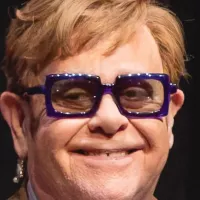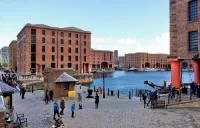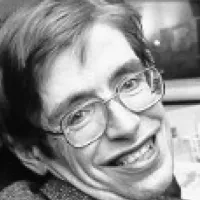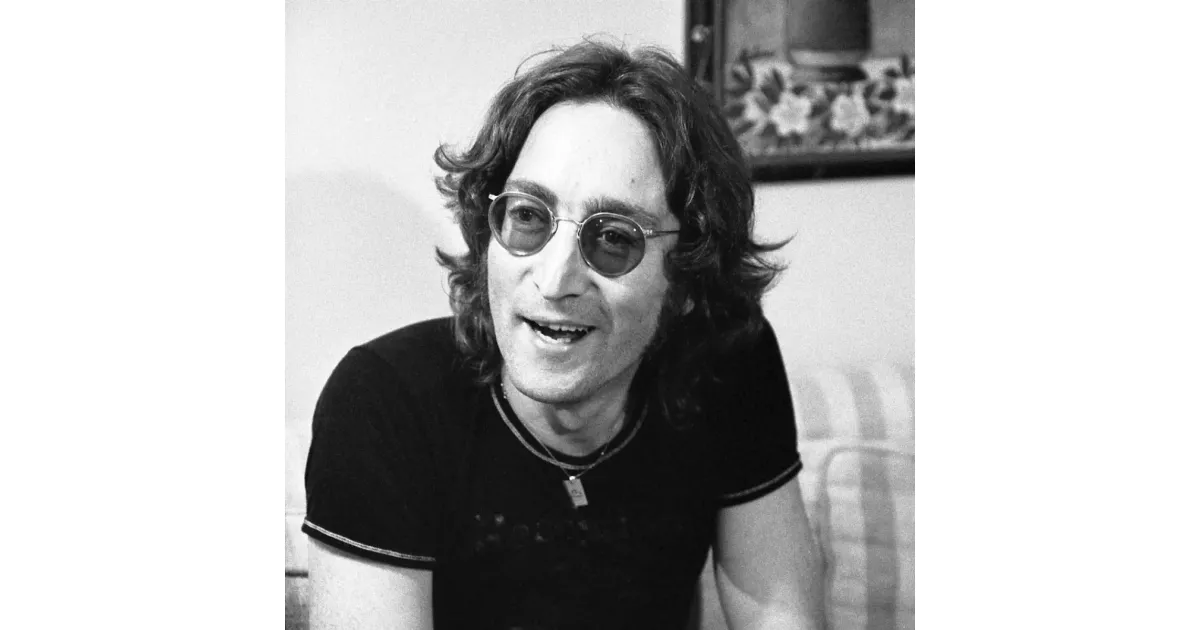A closer look at the defining struggles that shaped John Lennon's life and career.
John Lennon was a highly influential English singer-songwriter, musician, and peace activist. He achieved worldwide recognition as a founder, co-lead vocalist, and rhythm guitarist for the Beatles, one of the most successful and influential bands in music history. Lennon's songwriting collaboration with Paul McCartney is renowned as the most successful musical partnership of all time, producing a vast catalog of iconic and enduring songs. Beyond his musical achievements, Lennon used his platform to advocate for peace and social change, becoming a prominent voice for anti-war movements.
February 1944: Father's Absence and Discontinued Support
In February 1944, Alfred Lennon went absent without leave, ceasing the regular pay cheques he had been sending to support John and his mother.
July 1946: Custody Decision
In July 1946, John Lennon's father took him to Blackpool, intending to emigrate to New Zealand. Julia followed, and after an argument, John chose to stay with his mother.
July 1958: Death of Julia Lennon
On July 15, 1958, Julia Lennon, John's mother, was killed by a car, deeply traumatizing the teenage John Lennon and greatly influencing his later creative works.
1963: Recording of Please Please Me album
In 1963, during the recording of The Beatles' debut album, Please Please Me, Lennon's voice was compromised by a cold, particularly affecting the final track, "Twist and Shout". Lennon felt he was just screaming the song and strained his vocal cords. George Martin, The Beatles' producer, often used techniques like double-tracking to alter Lennon's voice at Lennon's request.
1965: Lennon's "Help!" expresses his feelings
In 1965, John Lennon felt concerned that fans at Beatles concerts couldn't hear the music due to screaming, impacting the band's musicianship. His song "Help!" reflected his feelings. He also felt he was subconsciously seeking change and had put on weight. In March 1965, Lennon and Harrison unknowingly took LSD after a dentist spiked their coffee at a dinner party, leading to a frightening experience.
March 1966: Lennon's remark on Christianity
In March 1966, John Lennon remarked in an interview that Christianity would decline and the Beatles were more popular than Jesus. The comment, initially unnoticed in England, sparked outrage in the US when quoted months later, leading to record burnings, Ku Klux Klan activity, and threats against Lennon, influencing the band's decision to stop touring.
1967: Release of "Strawberry Fields Forever" and Sgt. Pepper's Lonely Hearts Club Band
In 1967, John Lennon increased his LSD use, and his continuous use of the drug brought him close to erasing his identity. The year 1967 also saw the release of "Strawberry Fields Forever" and the Beatles' landmark album "Sgt. Pepper's Lonely Hearts Club Band", which revealed lyrics by Lennon that contrasted strongly with the simple love songs of the group's early years.
1967: Cynthia Lennon's experience at Bangor
In 1967, when the group traveled by train to Bangor, Wales, for the Maharishi Yogi's Transcendental Meditation seminar, Cynthia Lennon was stopped from boarding by a policeman who did not recognize her.
November 1968: Ono's Miscarriage
In November 1968, a few weeks after John Lennon's divorce from Cynthia Lennon was granted, Yoko Ono miscarried a male child on 21 November 1968.
November 1968: Divorce of John Lennon and Cynthia Powell finalized
In November 1968, the divorce case between John Lennon and Cynthia Powell was settled out of court, with Lennon granting her £100,000, a small annual payment, and custody of Julian.
January 1970: Bag One Lithographs Exhibition
On 15 January 1970, John Lennon's "Bag One" lithographs exhibition opened at Eugene Schuster's London Arts Gallery. The show was raided by police officers 24 hours later, who confiscated 8 of the 14 lithos on the grounds of indecency.
1970: Beatles Break-Up
Following the Beatles' break-up in 1970, John Lennon remained consistently friendly with Ringo Starr, but his relationships with Paul McCartney and George Harrison varied.
February 1972: Nixon Administration's Attempt to Deport Lennon
In February 1972, Republican Senator Strom Thurmond suggested that the Nixon administration should deport John Lennon as a "strategic counter-measure" against his anti-war activities which Nixon believed could cost him his reelection.
March 1973: Lennon Ordered to Leave the US
On 23 March 1973, John Lennon was ordered to leave the US within 60 days, while Yoko Ono was granted permanent residence.
1973: Beginning of the "Lost Weekend"
In 1973, Yoko Ono suggested that May Pang begin a physical relationship with John Lennon, leading to an 18-month period Lennon later called his "lost weekend."
December 1974: Dark Horse tour Incident
In December 1974, during George Harrison's Dark Horse tour in New York, John Lennon agreed to join him on stage but failed to appear after an argument over Lennon's refusal to sign an agreement to dissolve the Beatles' legal partnership.
1974: Alcohol-fueled incidents and producing Nilsson's album
In early 1974, John Lennon was drinking heavily. In March 1974, two incidents occurred at The Troubadour club: Lennon stuck an unused menstrual pad on his forehead and scuffled with a waitress, and Lennon and Nilsson were ejected from the same club after heckling the Smothers Brothers. Lennon decided to produce Nilsson's album Pussy Cats. In April 1974, Lennon had produced the Mick Jagger song "Too Many Cooks (Spoil the Soup)".
1976: Lennon granted permanent residency in the U.S.
John Lennon was embroiled in a continuing legal battle with the immigration authorities, and he was denied permanent residency in the US, but in 1976 this issue was finally resolved and he was granted the residency.
1980: Harrison's Autobiography
In 1980, George Harrison offended John Lennon with his autobiography, "I, Me, Mine", which Lennon felt made little mention of him and his influence.
1983: Wiener Sues the FBI
In 1983, historian Jon Wiener sued the FBI with the help of the American Civil Liberties Union of Southern California, seeking the release of FBI files documenting the Bureau's role in the deportation attempt against John Lennon.
April 1992: Justice Department Appeals to Supreme Court
In April 1992, the Justice Department appealed the decision to the Supreme Court regarding the release of John Lennon's FBI files, but the court declined to review the case.
Mentioned in this timeline

Sir Elton John is a highly successful British singer songwriter...

Bill Clinton served as the nd U S President from...

Liverpool is a port city and metropolitan borough located in...

The White House located at Pennsylvania Avenue NW in Washington...
Nigeria is a West African nation the most populous in...
California is a U S state on the Pacific Coast...
Trending

56 minutes ago Stephen Hawking's Reputation Tarnished: Epstein Files Photo Goes Viral, Sparks Controversy

56 minutes ago Noah Kahan's 'The Great Divide' Reaches Number One & Enters A New Era

56 minutes ago Tarantino's Cliff Booth Spinoff Teased with Fincher, Pitt's Netflix Movie Revealed.

57 minutes ago Chris Stapleton Dampens Hopes: No New Music Imminent, Retirement Speculation Swirls Anew

2 hours ago Ryan Gosling finds right franchise fit with Star Wars: Starfighter after feeling unconvinced previously.

2 hours ago Carey Mulligan on Narnia, Prada, and a Regretted Role Audition.
Popular

Jesse Jackson is an American civil rights activist politician and...

XXXTentacion born Jahseh Dwayne Ricardo Onfroy was a controversial yet...

Hillary Diane Rodham Clinton is a prominent American politician lawyer...

Michael Joseph Jackson the King of Pop was a highly...

Kashyap Pramod Patel is an American lawyer who became the...

Barack Obama the th U S President - was the...

